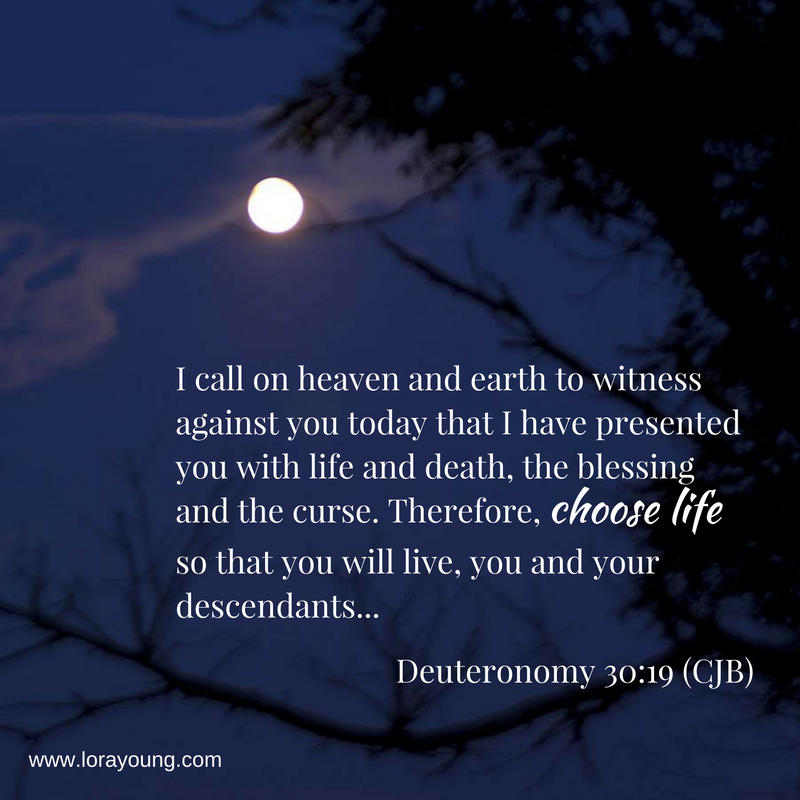
Eighth Day – Simchat Torah
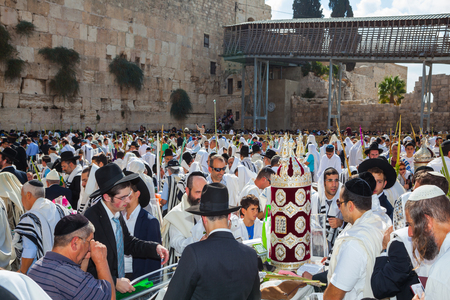
kavram © 123RF.com
How I love Your Torah! I meditate on it all day. Psalm 119:9
After weeks of examining our hearts and mourning our sin and spending time with God in our booths, we come to the end of High Holy Days—Simchat Torah. I had no idea (beyond what I’d read) what this service would be like. Simchat Torah is a Holy Day I had never heard of.
Lots of Christians talk about the Seven Feasts of Israel—Passover, First Fruits, Feast of Unleavened Bread, Pentecost, The New Year, Day of Atonement, and the Feast of Booths. Much is said about how the first four were prophesies fulfilled at Jesus’ first coming and the last three will be fulfilled in the last days. But what about Simchat Torah?
“For from the earliest times, Moshe has had in every city those who proclaim him, with his words being read in the synagogues every Shabbat.” Acts 15:21 Moshe’s (Moses’) words is Torah. For thousands of years, the walls of synagogues throughout the world have reverberated with the sounds of Genesis through Deuteronomy being read. Simchat Torah is the day when the last verses of Deuteronomy and the first verses of Genesis are read, signifying that the Torah of God never ends.
It’s the eighth Holy Day. It commemorates the Torah. Wait a minute, you might say. Isn’t that what Pentecost did? It did. But Pentecost (Shavuot) is commemorates the giving of the Torah. It’s observed by studying Torah. Simchat Torah is a celebration of what Torah is—what it says to us.
We’ve been given the Torah so we’d know what the standard for righteousness is. If the definition of sin is “missing the target,” what’s the target? Righteousness. How do we know what’s righteous and what isn’t? Torah!
Torah is righteousness written down. Yeshua (Jesus) is righteousness lived out. Jesus was sinless because He obeyed the Torah perfectly. (Some of the Jewish leaders at the time would have said they obeyed Torah perfectly too, but they didn’t even understand Torah accurately. Even if they were super-obedient, they couldn’t possibly obey something they didn’t completely understand. Jesus understood perfectly and He obeyed perfectly. That’s why He could die for our sins. Yeah…Yeah…bunny trail. But a really important bunny trail.)
If we’ve studied Torah (both the written down one and the living one—Jesus)… If we’ve made changes to the way we live by putting into practice the command of Torah (both written and living)… Then Simchat Torah is an expression of our gratitude for our growth and for our excitement at getting to grow more in righteousness.
After prayers of thanksgiving for the giving of the Torah, the Torah scrolls were brought out. Anyone who wanted to could carry a scroll for a processional through the room. It was a time of joyous dancing, clapping, and singing. Seven times the Torah scrolls processed around the perimeter of the room. Between each time, a reader read a prayer ending with a request for God to “answer us when we call.”
The service ended with another prayer and the rolling back the scroll to the beginning.
Since it was my first time, I didn’t actively participate. I didn’t sing, because I didn’t know the words. I didn’t dance because I’m an introvert. I just clapped and enjoyed.
Then I reflected.
Some might say these people were worshipping the Torah. Some would be wrong in saying that. Over and over in the Psalms, David says things like, “I love your Torah.” “Your commands are life to me.” And, as stated above, “I meditate on it all day.”
I thought about all that I’d seen and about Psalm 119. Do I love God’s commands? Are they life to me? Do I meditate on it all day?
Uh…not really.
But I want to, because “Those who love Your Torah have great peace; nothing makes them stumble.” Psalm 119:165.
This Shabbat, the reading will begin again with Genesis. “So trust comes from what is heard, and what is heard comes through a word proclaimed about the Messiah.” Romans 10:17 (CJB)
Thoughts? Let’s reason together in the comments.
If We Confess Our Sins
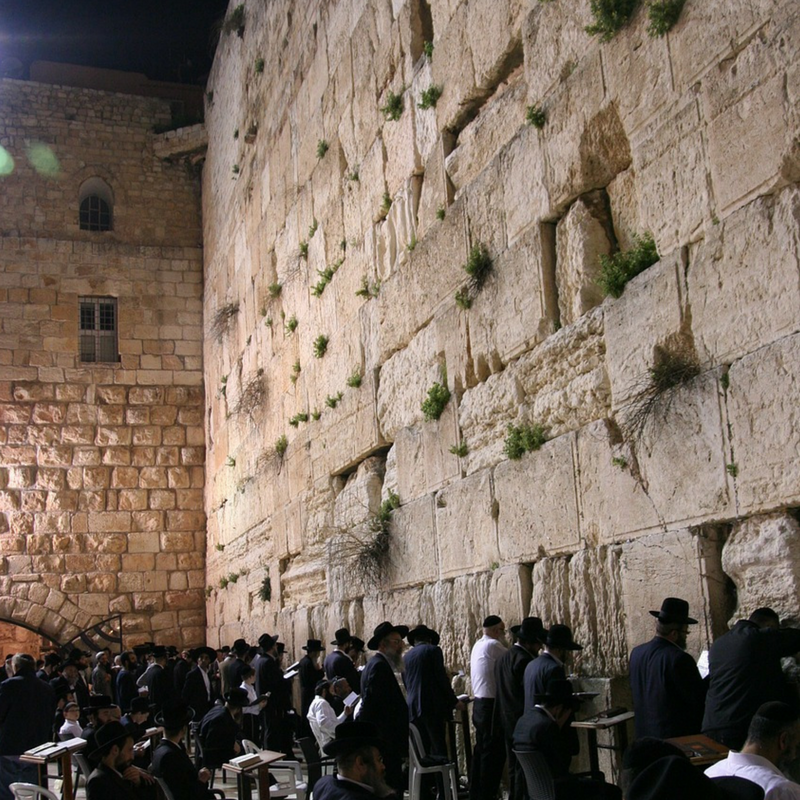 I confessed my sins last night. At a local Messianic congregation, I joined a hundred other people as we confessed our sins together in the Yom Kippur liturgy.
I confessed my sins last night. At a local Messianic congregation, I joined a hundred other people as we confessed our sins together in the Yom Kippur liturgy.
That isn’t something Christians do very often—if ever. Especially not evangelicals.
The portion of the liturgy that includes the confessed sins begins like this:
For the sin which we have committed before You under duress or willingly.
And for the sin which we have committed before You by hard-heartedness.
For the sin which we have committed before You inadvertently.
And for the sin which we have committed before You with an utterance of the lips.
It goes on for pages and pages. You can see an entire Al Chet (confession of sins) here.
The impact it had on me…
It was sobering.
And freeing.
Sobering in that God takes sin very seriously. More seriously than we do, I think. And freeing because He is faithful and just to forgive us our sins and cleanse us from all unrighteousness. (1 John 1:9)
Another portion of the liturgy was read responsively. The rabbi read each of the Ten Commandments. The congregation asked God to reveal ways they had violated those commands.
Again, wow!
So many times, we have a tendency to lump sin together for confession (“Forgive us all our sins.”) and move right on into the good part—God’s grace and forgiveness. But by naming each category of sin and taking a moment to let that sink in and searching my heart to see where I’ve not measured up to God’s standard, my gratitude for God’s mercy overwhelmed me. Rabbi opined that we need to enumerate our sins to be reminded of what we’ve been forgiven. Then, and only then, the gratitude goes deep.
During the course of the Yom Kippur services, these confessions are recited ten times. I’m not sure why they do that, but each time I confessed, the Lord zeroed in on different things in my life for which I need to be cleansed.
For 25 hours during Yom Kippur, the Jews fast both food and water. They do it out of obedience to the command in Leviticus 16:29 to “…deny yourselves…” or “…afflict yourselves…” They do it to mourn their sin. They do it to remind themselves of how serious sin is.
I went into the fast knowing that I didn’t intend to fast water. I’m a lightweight. Not that my sins are lightweight (or my body mass, for that matter) but my willpower is. Even though I didn’t fast water, my thirst raged. (Not quite sure why.) I simply couldn’t drink enough water. And I couldn’t stop thinking of those who have none. It brought me to my knees to beg forgiveness for my callousness toward them. It also sent me to the Samaritan’s Purse website to donate to one of their numerous clean water projects.
So, I confessed my sins. Does that mean that my name is written in the Book of Life for another year? No, I am inscribed and sealed because of Jesus. What I experienced over the last 25 hours deepened my faith in Messiah’s atoning sacrifice. It deepened my love and gratitude to God, the Father and God, the Son. And it deepened my trust in the active drawing of the Holy Spirit in my life.
I’m determined, by the grace given to me, to gain victory over at least one of those many sins between now and next year. And if I fail? I will trust in God’s promises to complete the work He’s begun in me, (Philippians 1:6) and I’ll try once more.
Inscribed and Sealed
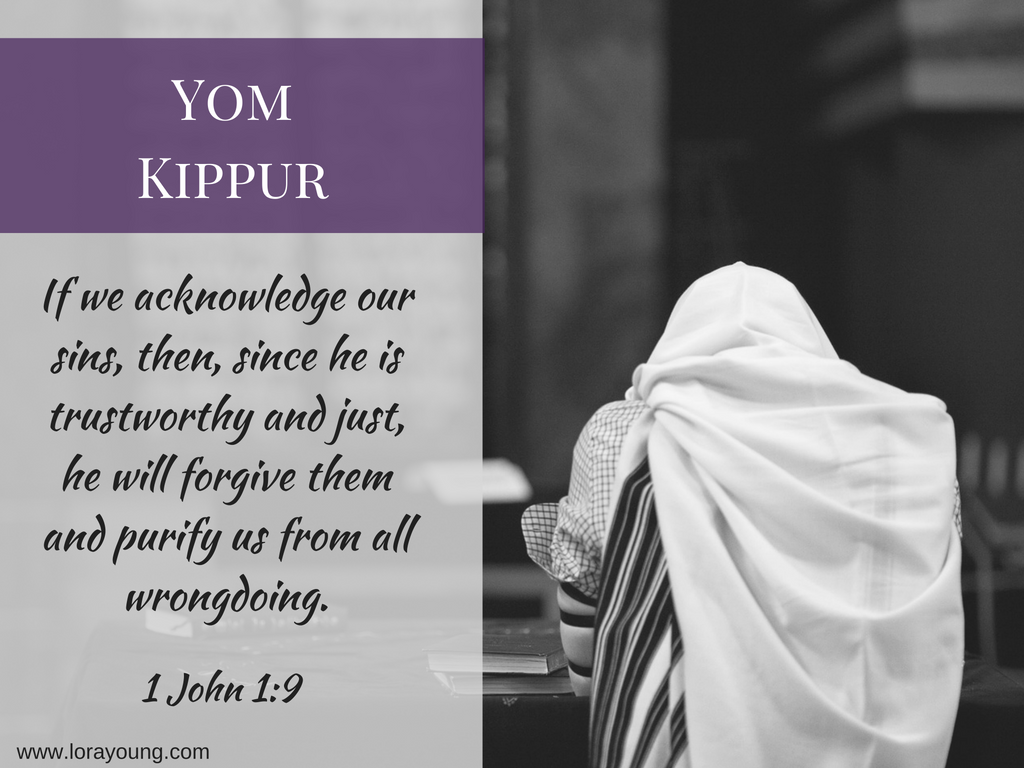
29 “It is to be a permanent regulation for you that on the tenth day of the seventh month you are to deny yourselves and not do any kind of work, both the citizen and the foreigner living with you. 30 For on this day, atonement will be made for you to purify you; you will be clean before Adonai from all your sins. 31 It is a Shabbat of complete rest for you, and you are to deny yourselves. Leviticus 16:29-31 (CJB)
And so it begins—Yom Kippur—the holiest of the Holy Days.
The time between the new year, Rosh HaShanah, and Yom Kippur (Day of Atonement) is known as Yamim Noraim (Days of Awe). It’s a time for introspection and repentance.
Jewish tradition holds that God opens the Book of Life on Rosh HaShanah. He begins inscribing the names of those who are upright and holy before Him. On Yom Kippur, the Book is closed for the year. That makes it very important that Jews take these Days of Awe seriously. That they examine their lives with regard to sins committed against God and sins committed against one another and confess, both to God and to others. Confessing one’s sins to God only cleanses us from our sins against Him. To be clean from wrongs against our fellow man, we must go to them.
Before we dismiss this as a strange Jewish custom, remember Jesus’ words:”23 So if you are offering your gift at the Temple altar and you remember there that your brother has something against you, 24 leave your gift where it is by the altar, and go, make peace with your brother. Then come back and offer your gift.” (Matthew 5:23-24 CJB) Sounds like Jesus didn’t think it was a strange custom at all.
At the end of Yom Kippur, when the Book of Life is closed for another year, Jews from around the world trust that their pleas for forgiveness have been heard and their names are inscribed and sealed therein.
Yom Kippur is one of the six fast days for the Jews, as commanded in Leviticus, “…and you are to deny yourselves.” The fast serves several purposes. 1) It’s part of denying ourselves. 2) If we’re truly repentant and mourning our sin, who can eat? 3) It brings us closer to God, as further explained below.
In addition to the commands of Yom Kippur, repentance and fasting, one of traditions includes wearing white. This comes from the tradition that on Yom Kippur, we are like the angels in that we don’t eat or drink. We don’t work and we don’t have intimacy with our spouses. It’s the day when we are pure before God like the angels.
Another tradition is to avoid leather footwear as a sign of depriving ourselves of comfort. (Most of the Yom Kippur liturgies are prayed while standing.)*
As I’ve studied the High Holy Days, I’ve been reminded of the Church calendar and struck by the similarities. Lent is also a time of repentance and fasting. Was Lent a hold-over from the Jewish observance of Yom Kippur? Borrowed from Judaism and altered to make it more “Christian”? I don’t know. Still, I believe there are many things we can learn from Judaism that will enhance our faith in the God of Israel and His Son, Jesus.
I plan to attend some of the Yom Kippur services at the local Messianic congregation and will post my experiences and thoughts soon.
*Some of these ideas seemed…well…weird to me until I recalled a few of the weird Church traditions. How about: animals can talk at midnight on Christmas Eve? Yeah, not gonna judge Judaism’s strange traditions when the Church has a few of her own.
Thoughts? Let’s reason together in the comments.
The Sound of the Trumpet
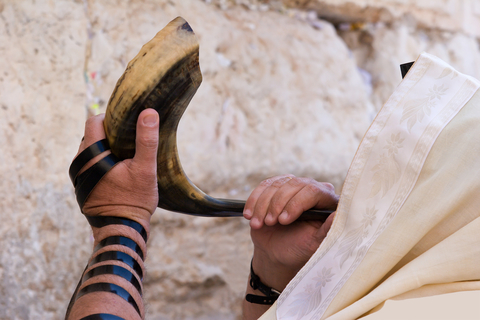 The shofar blast rang through the room, and a tingle ran up my spine at the sound. Such a majestic sound. We certainly don’t hear that in church! The Bible says the Messiah will return with the sound of the shofar. I can well imagine.
The shofar blast rang through the room, and a tingle ran up my spine at the sound. Such a majestic sound. We certainly don’t hear that in church! The Bible says the Messiah will return with the sound of the shofar. I can well imagine.
One of the distinctions of the Rosh HaShanah services is the blowing of the shofar—a ram’s horn. It’s blown like a trumpet, with the embouchure (the way the mouth is place on the mouthpiece) changing the tones. (Hence, Rosh HaShanah is also known as the Day of Trumpets.)
The Bible doesn’t say why the shofar is blown, simply that it should be. Jewish tradition lays some guidelines.
There’s a prescribed time in the liturgy and manner of these sounds. According to Aish.com, the Tekiah sound is one sustained tone. It is a call to acknowledge God as King over all. In Jewish tradition, the King is a servant of the people. Since his only concern is for the good of his people, his laws are only for their benefit, not for his. The Tekiah sound is the sound of a king’s coronation.
The Shevarim sound is three short blasts. According to Kabbalah tradition, it’s the sound of a sobbing heart, longing for connection and growth. (I don’t hold with Kabbalah. There’s some strange stuff in there. But in this instance, this interpretation of the Shevarim gives deeper meaning to Rosh HaShanah.) As we reflect on the past year, we know that we’ve failed in so many ways. Failed to keep the commands of God. Failed to live up to our potential. Failed to use His gifts to us. The Shevarim is a call to repent and start anew.
Rosh HaShanah is a time to wake up and be honest about our lives—who we are, where we’ve been, and where we’re going. The Teruah sound is nine short blasts. It’s been compared to an alarm clock, waking us from our slumber.
The final sound is the Tekiah Gedolah, literally “the big tekiah.” It’s one very long blast of the shofar.
Truth be told, I didn’t know the symbolism of the shofar sounds when I went to the Rosh HaShanah services. I wish I had. Learning of them has deepened and given structure to my time of repentance.
Jewish tradition says that the Messiah will come (again) during Rosh HaShanah.
Maybe it’ll be during the sounding of the Tekiah Gedolah.
Maybe next year.
Thoughts? Let’s reason together–in the comments.
Abdicating the Throne
What does it mean to have a King?
I stole the title for this post (and for the category of my faith posts). My daughter once had a blog entitled Abdicating the Throne. Since it no longer exists, she said I could have it.
It so perfectly fits what God calls us to do every day. If we’re “in charge” of our own lives, we are, in essence, the king. What happens when we make someone else the King of our lives? Well, we have to get off the throne.
I’ve been doing a lot of pondering about what that looks like. I’ve read articles before about how we in America don’t understand what it means to have a king. (I would opine that many in England or other democratic monarchies don’t quite get that either, but that’s beside the point.)
One of the things I learned in studying this is just how similar the covenant God made with the Israelites was to the ancient treaties between greater and lesser kings. The vassal (the lesser king) would swear fealty and obedience to the suzerain (the greater king). The terms of these treaties often called for the vassal to “love the lord.” “The lesser king (or vassal) “loves” his lord by showing him exclusive loyalty and observing the norms of the treaty.”¹ (For more about these similarities and differences, click on the link below.)
So, when God commands us to “love the Lord your God with all your heart and with all your soul and with all your strength,” (Deut. 6:4) that command carries with it the understanding that we’ll “observe the norms of the treaty.” Obedience is the way we demonstrate our love for our King.
I’m sure there were times when those lesser kings didn’t want to obey the treaty. It probably included rendering military service and giving a portion of crops and animals to the suzerain. It might not have been convenient. But that didn’t matter. He’d made an agreement and it must be fulfilled or he’d face the consequences.
In our case, the same thing holds true. When we accept the sacrifice Jesus made for us, we enter into a treaty with God. That new covenant (or treaty) says, 30 (31) “Here, the days are coming,” says Adonai, “when I will make a new covenant with the house of Isra’el and with the house of Y’hudah. 31 (32) It will not be like the covenant I made with their fathers on the day I took them by their hand and brought them out of the land of Egypt; because they, for their part, violated my covenant, even though I, for my part, was a husband to them,” says Adonai. 32 (33) “For this is the covenant I will make with the house of Isra’el after those days,” says Adonai: “I will put my Torah within them and write it on their hearts; I will be their God, and they will be my people.” Jeremiah 31:31-33 (CJB)
Jesus said, “If you love me, you’ll keep my commands.” John 14:15 (CJB) Obedience. That’s what it comes down to.
So, the choice is ours. Do we or don’t we love our God and Saviour? Will we abdicate the throne and allow the greater King to sit there?
Thoughts? Let’s reason together—in the comments.
¹ The Shema and the Commandment to Love God in Its Ancient Contexts by Prof. Jon D. Levenson http://thetorah.com/the-shema-and-the-commandment-to-love-god-in-its-ancient-contexts/
L’Shanah Tovah!
Leviticus 23:24 says, “Tell the people of Isra’el, ‘In the seventh month, the first of the month is to be for you a day of complete rest for remembering, a holy convocation announced with blasts on the shofar. (CJB)
Rosh HaShanah started at sundown on October 2nd and ended October 4th at sundown. (The holiday lasts two days outside of Israel. That’s to make sure it’s observed on the right day, given time differences and all.) I was privileged to attend some of this Holy Day’s services at a local Messianic Jewish Congregation. Not only was the experience amazing, I also learned quite a bit about this first of the High Holy Days.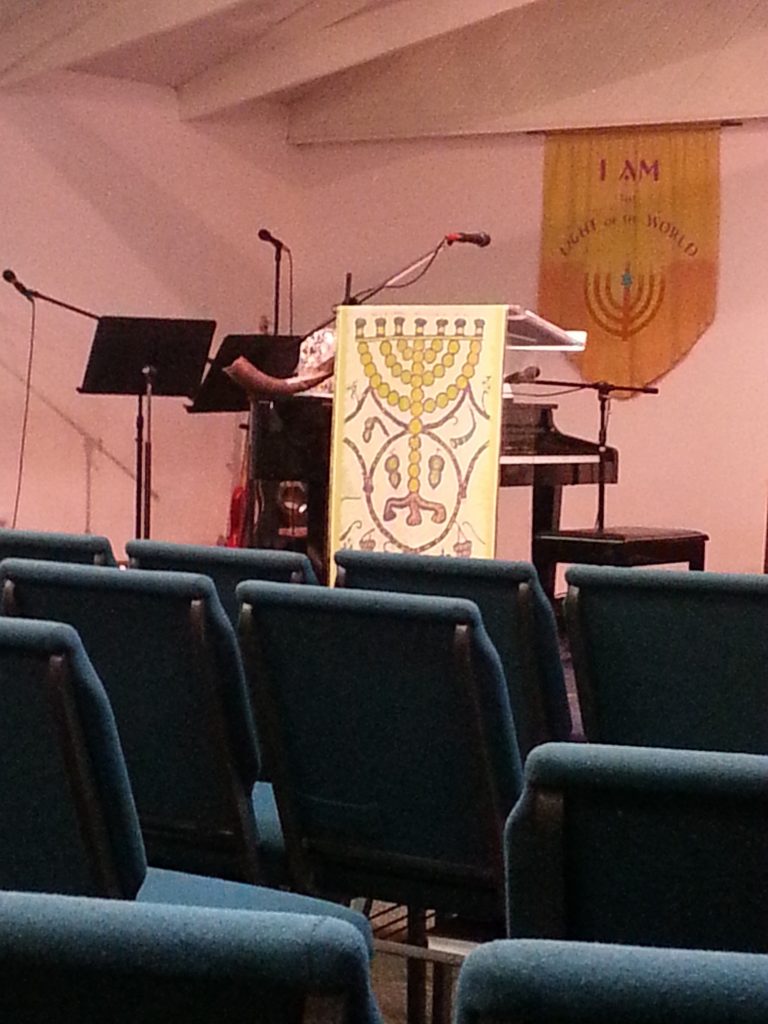
Rosh HaShanah is the new year. (It’s now 5777 on the Jewish calendar.) It commemorates creation.
The traditional greeting is “L’Shanah Tovah,” which means “for a good year.” It’s short for a Hebrew phrase meaning “May you be inscribed and sealed for a good year”—a concept that goes along with Yom Kippur (the Day of Atonement) and the Days of Awe. (Chosen People Ministries has some great articles about the High Holy Days.)
Traditional foods are apples dipped in honey and other sweet apple treats. It’s a reminder that we long for a sweet year ahead.
It also begins a time of introspection and repentance (the Days of Awe). In this, it’s similar to Lent, but pre-dates that Christian liturgical time by a few thousand years.
I’ve attended a couple of Shabbat services at the Messianic Jewish Congregation, so I knew a little bit of what to expect. The liturgy they use is pretty lengthy and in a mix of Hebrew and English. (Which was so cool to listen to.) It’s taken from the Bible, including the Brit Chadashah (the “new covenant” or the New Testament).
One of the things that struck me was how very little repentance is talked about in the Church today. Judaism teaches that repentance or teshuva has four steps that all must take place before repentance can be said to have happened. Teshuva is more accurately translated return. After all, isn’t that the point of repentance? Returning to the Lord?
The steps:
- We need to truly regret what we did. Not just feel guilty, but regret the missed opportunity to follow God’s commands and maintain the open relationship between ourselves and God.
- Leaving the sin. We must do whatever it takes to avoid the path that led to the sin. That might mean taking a different route work, not buying certain foods at the grocery store, making new friends.
- Verbally state the transgression. Something happens when we verbalize something…anything. It makes it real. It formalizes and clarifies it. As long as it remains a vague, nebulous thought, it’s easy to think it isn’t really sin. Not really. When we put that transgression into words, it gets real.
- Resolve never to transgress in this way again. As long as we’re unwilling to do this step, we might as well not waste God’s time in doing the other three. Don’t get me wrong. God’s forgiveness is there no matter how many times we fail. But we can’t have the idea that we don’t have to take teshuva seriously because “Oh, well. God’s grace, you know.” Yeah…no! It doesn’t work that way.
Aish.com has a much more thorough explanation of the four steps.
During the days leading up to Yom Kippur, I plan to spend some time sitting with the Lord and examining things I need to change in order to become more like Jesus the Messiah.
I’d love to hear your thoughts about Rosh HaShanah. Were these teshuva steps a new idea for you? A helpful frame or structure for your times of repentance? Let’s reason together—in the comments.
Nothing in Comparison
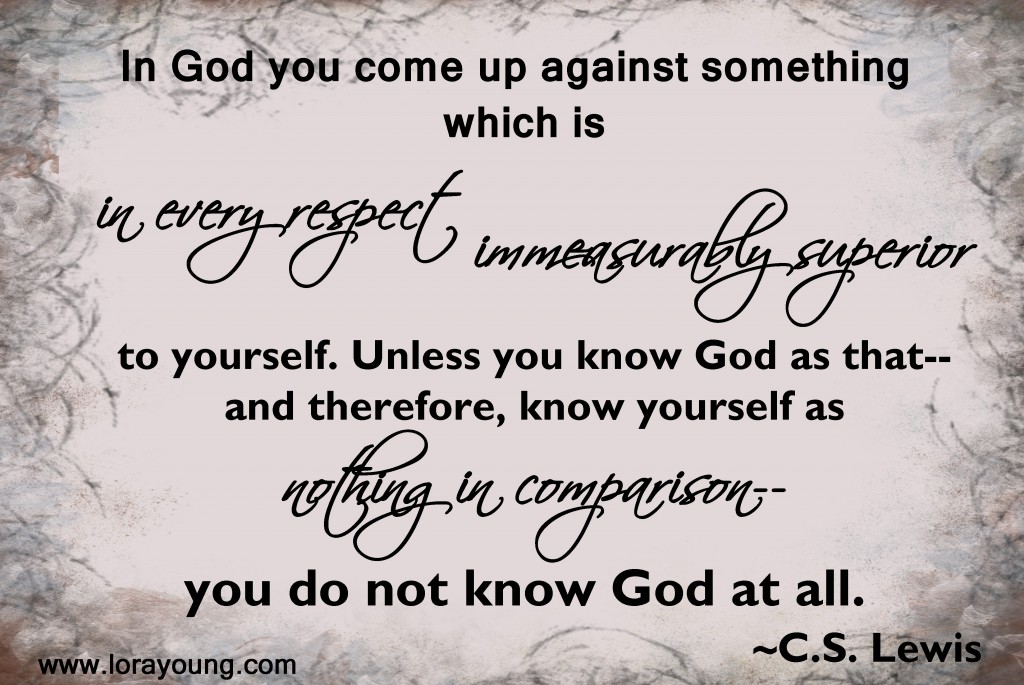
The Olive Shoot
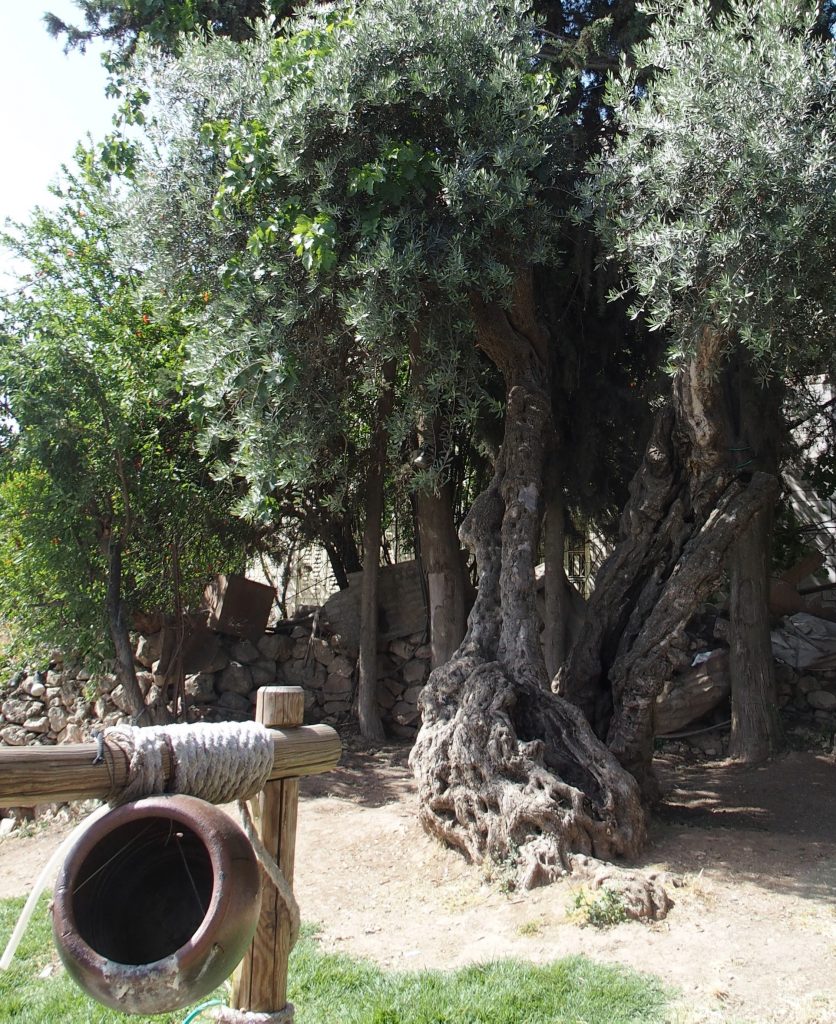 For the past year I’ve been studying the Jewish roots of my faith. I’ve spent no small amount of time grappling with where Gentile believers fit. After all, I’m just a dyed-in-the-wool Irish girl. That’s about as far from Jewish as you can get. If the covenants, including the new covenant (Jeremiah 31:30-31), were given to Israel, where do I belong?
For the past year I’ve been studying the Jewish roots of my faith. I’ve spent no small amount of time grappling with where Gentile believers fit. After all, I’m just a dyed-in-the-wool Irish girl. That’s about as far from Jewish as you can get. If the covenants, including the new covenant (Jeremiah 31:30-31), were given to Israel, where do I belong?
All the symbolism of the olive tree in Romans 11 has always been pictured as Gentile believers being grafted in as a branch, whereby we receive nourishment from the root, but we’re still completely separate.
In Israel, our guide was a Biblical botanist, so she talked about the olive tree from a botanical point of view.
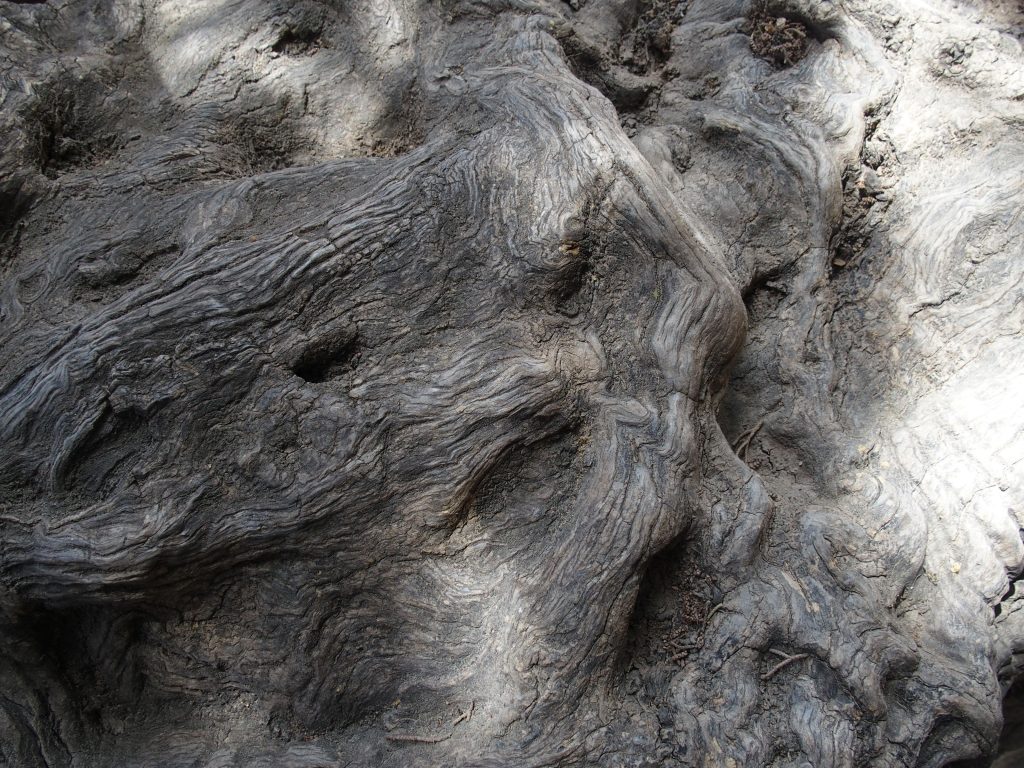
Standing next to the olive tree and noticing the gnarliness of the trunk, I realized that the shoots at the bottom of the tree had grown into the trunk to make it look like that. Malkah talked about the Hebrew word netzer, which means shoot or branch, and the word Notzrim, which is the Hebrew word for Christian, and my picture of the olive tree symbolism changed.
Since then, I did a little studying. Horticulturally, unwanted shoots are removed as shoots.
The arborist doesn’t wait until they become full branches. Likewise, grafts are frequently made at the shoot level, not as a fully developed branch. This enables the graft to meld into the trunk and deliver its goodness to the entire olive tree, while receiving all the goodness the root and main trunk has to offer.
What goodness do the trunk and root offer us? Everything. Ephesians 2 says that we were “excluded from the commonwealth of Israel, and strangers to the covenants of promise, having no hope and without God in the world.” Everything we know or understand about God comes through the Jews and the covenants made with them. Our understanding of the Scriptures makes so much more sense if we view them through the lens of Judaism. Even Jesus himself was given to us through the Jews.
And what we give in return are lives which demonstrate our trusting faithfulness in Jesus—their Messiah. Passion for Jesus and love for His people is what Paul said would incite jealousy in the non-Messianic Jews. That’s our job. To love Jesus so much that the Jews who don’t yet accept him as their Messiah will want to love and accept Him too.
Thoughts? Let’s reason together–in the comments.
The Sort of Fast God Wants
Our pastor recently called for a 40-day fast. Not a complete fast. I don’t know many people who do that. But we can all fast something
(Lent is one of the things I like about the liturgical church—even though I grew up Baptist and have never attended a liturgical church. I know. Rabbit trail.)
As I prayed about what to fast, Isaiah 58 turned up in my reading for the day.
Go ahead and read it. I’ll wait.
Well, I was convicted.
It’s super easy to give up a meal a day or sugar or Facebook for 40 days.
But what about taking that meal I skipped to someone who’s hungry or lonely?
Or baking cookies (without scooping up a fingerful of dough) to take to a nursing home?
Or using the time I waste (Gasp! Did I just say “waste”?) on Facebook to go through my closets and pantry for good stuff from my abundance to give to those who have little?
The Jews have this strange idea that “Thy kingdom; Thy will be done on earth as it is in heaven” is more than just a prayer.*
It’s a command.
A command to “fix the world.”
What if the Church joined the Jews in fixing the world? Yes, there are many Christian organizations that do just that. They are worthy of our prayers and financial support.
But do I, as an individual, take the time, effort, and courage to even see the hurts and then do what I can to help?
Umm…not so much.
But I want to.
*The Lord’s Prayer is seen as a condensed form of The Amiday—a daily Jewish prayer.
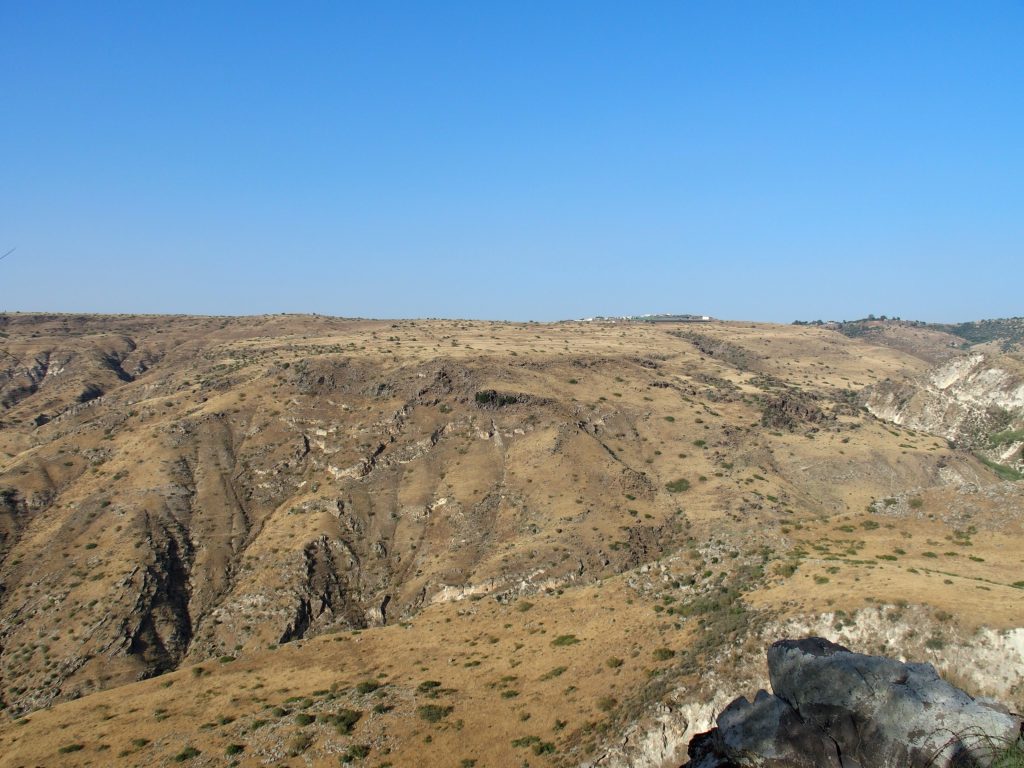
This is a picture we took on our 2016 trip to Israel. (I say that like there’s gonna be more trips. I hope so!!!)

